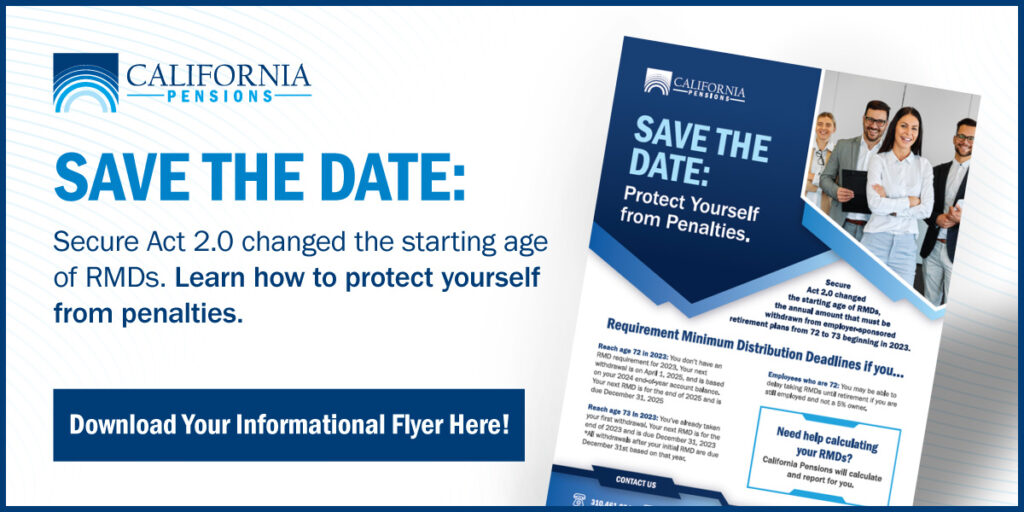When managing your organization’s retirement plan, there will be times when you’ll need to completely re-write your plan document. This is often prompted by changes in 401k policies. Drafting a new plan document brings with it a set of 401k restatement requirements that need to be recognized and adhered to. That’s why in this blog, we’re going to unpack the sometimes complex process of plan restatements. We’ll guide you through the critical 401(k) restatement requirements, so that you have a comprehensive understanding of what’s expected when you’re updating your plan.
401(k), SEP, or SIMPLE? Find Your Right Retirement Plan Solution with Our Helpful Infographic!
The Basics of 401(k) Restatements
401(k) restatements are crucial to being qualified with IRS 401(k) policies. These restatements need to be made periodically, which we’ll explain in a moment, but it’s all to see that your plan reflects updated regulations, laws, and plan features and rules. It’s critical plan sponsors, and anyone else involved in a company’s 401(k), to understand these new regulations and the ins and outs of the new plan.
Timing and Frequency of 401(k) Restatements
How often do you need a 401(k) restatement? Per the Remedial Amendment Cycle (RAC), standardized plans can be submitted for pre-approval every 6 years. This makes sure that regulations and legislative changes are being recognized.
Beyond this, though, organizations must make interim amendments to their plan between the RAC. These amendments should reflect regulatory and legal changes as they happen.
Common Compliance Issues and Avoidance Strategies
The most common mistake in terms of restatements is simply not having updated the plan along with law changes. If this happens, it is crucial to add amendments that fulfill the most current policies. That said, what can you do to prevent that mistake? Let’s look at a few strategies:
- Use a Calendar: Mark down critical deadlines for when amendments are due. Also, keep track of when laws go into effect.
- Schedule Reviews: Schedule and perform reviews on the plan document, and make sure it is compliant.
- Work with the Experts: Collaborate closely with the provider that administers your organization’s retirement plan. It’s important to maintain regular contact with them and seek out their expertise.

Companies need to make interim amendments to their plan between the RAC
401k Restatement Requirements for Plan Document Updates
With the understanding of the basics of 401k restatements, what specifically do you need to know about 401k restatement requirements? Let’s review the major requirements.
Requirement: Legislative and Regulatory Updates
This requirement involves adjusting plan documents to reflect changes in legislation and IRS policies. It ensures that your 401(k) plan operates within current laws, protecting your organization from penalties and legal issues.
Amendments should align with the enactment of laws or the release of new IRS guidelines. Prompt action in response to these changes guarantees compliance with the regulations governing 401(k) plans.
Requirement: Operational Compliance Reviews
This requirement demands a thorough examination to confirm that the plan’s operations align with the descriptions in the plan document. Operational compliance is critical as it identifies any discrepancies between the plan as written and its actual execution. These mismatches could lead to IRS sanctions.
Such reviews are necessary before restating the plan document, typically during the RAC, or when significant operational changes occur.
Requirement: Adoption of Pre-Approved Plan Documents
Organizations using standardized plans are encouraged to utilize IRS pre-approved plan documents. This simplifies the restatement process and ensures IRS approval.
This should be done at the beginning of each new RAC, or when an organization transitions from an individually designed plan to a pre-approved one.
Requirement: Discretionary Amendments
Discretionary amendments refer to updates made to plan documents based on elective changes chosen by the plan sponsor. These amendments allow plan sponsors the flexibility to tailor plan features and respond to the unique requirements of their organization.
Amendments can be made at the discretion of the plan sponsor; however, they must be formally adopted and integrated into the plan document before they are put into effect.
Find 401(k) Compliance with California Pensions
It is of the utmost importance that your organization is proactive in 401k restatements. Be sure to pay close attention to policy changes, review your plan, and adhere to 401k restatement requirements. You may also find the most success by working closely with a retirement services company like California Pensions. We offer well-managed, affordable retirement plan administration services, consulting, compliance, and more for small and medium-sized businesses. Contact us today for a consultation and personalized assistance!





